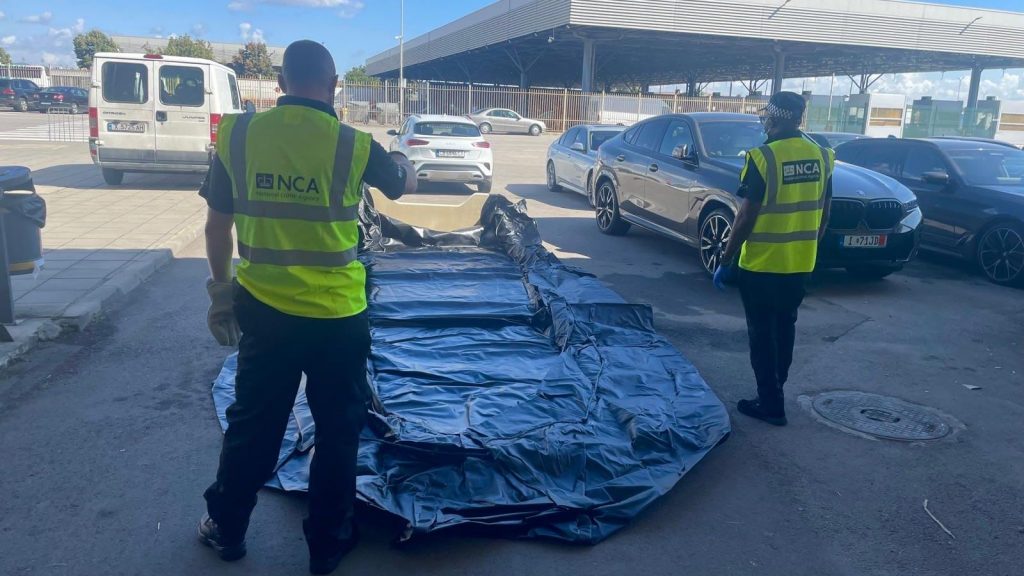Bulgarian customs officers have intercepted close to 70 inflatable boats at the Kapitan Andreevo checkpoint since the beginning of this year. The boats, hidden in trucks crossing from Turkey, were reportedly meant to be used by smugglers to transport migrants across the English Channel to the United Kingdom.
This marks the second year in a row that Bulgaria has been working closely with the United Kingdom to block the smuggling of boats used for migrant trafficking. Nearly 200 such boats have been seized at the border over the past two years, showing how serious the problem has become.
The latest seizure happened just days ago when officers discovered 20 dinghies inside a Turkish truck. The shipment was declared as tarpaulins, but on inspection, customs officers uncovered inflatable rubber boats with reinforced bottoms, designed for migrant crossings. Krasimir Chapkanov, Head of the Operational Unit at Kapitan Andreevo, explained that traffickers often disguise shipments with false labels such as tarpaulins or tents to escape detection by X-ray scanners.
Authorities believe the boats are manufactured in Turkey by unknown companies. “They have no documents, no certificates, no warranties. They are made solely for this purpose,” Chapkanov said. The engines used for these boats are shipped separately to reduce suspicion at the borders.
Why is this cooperation between the UK and Bulgaria so important? The answer lies in both safety and prevention. Many of these boats are poorly made and overcrowded, putting the lives of migrants at serious risk. By intercepting the boats before they reach the sea, Bulgarian authorities are not only disrupting trafficking networks but also saving thousands of lives.
To strengthen their fight against trafficking, Bulgarian customs officers have received specialised training and new equipment. The UK has also provided financial support, including a grant of 600,000 lev (€307,000) for endoscopes, gas analysers, lifting gear, and other tools to detect smuggled boats more effectively. According to Diana Markova, spokesperson for the Bulgarian Customs Agency, this partnership has proven to be very effective.
The impact of these operations is significant. In 2024 alone, almost 37,000 undocumented migrants reached British shores using similar boats, with many dying during the dangerous journey. UK authorities estimate that their joint efforts with Bulgaria have saved at least 6,100 lives and caused over €18 million in losses to organised crime groups.
Despite the progress, the challenge remains ongoing, as traffickers continue to find new ways to move boats and people across borders. Both the UK and Bulgaria say they will keep working together to disrupt these dangerous trafficking networks and protect vulnerable migrants from exploitation and death.

